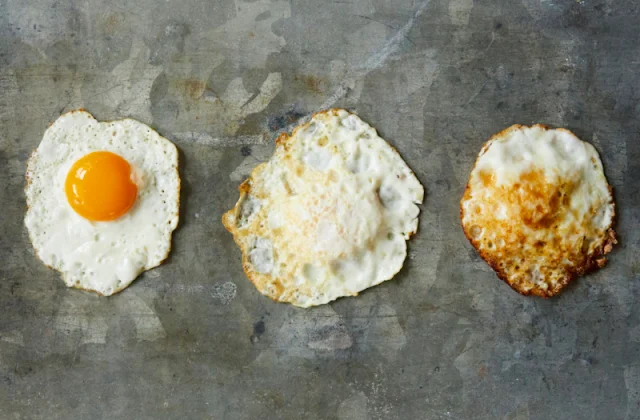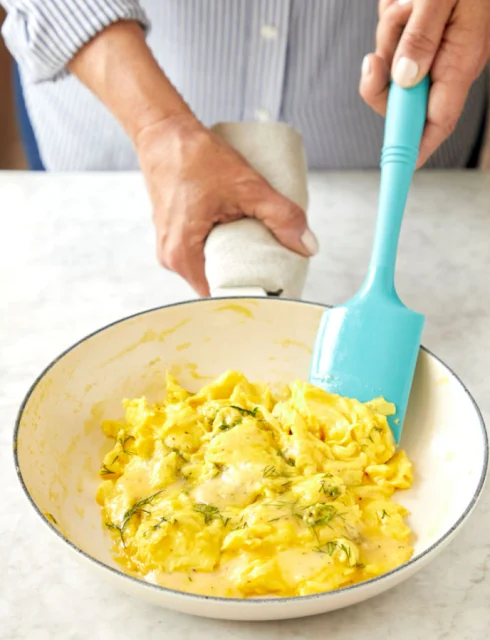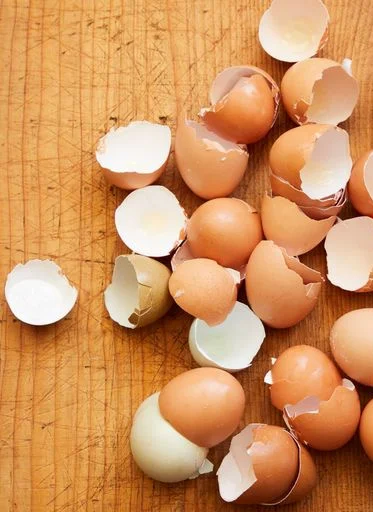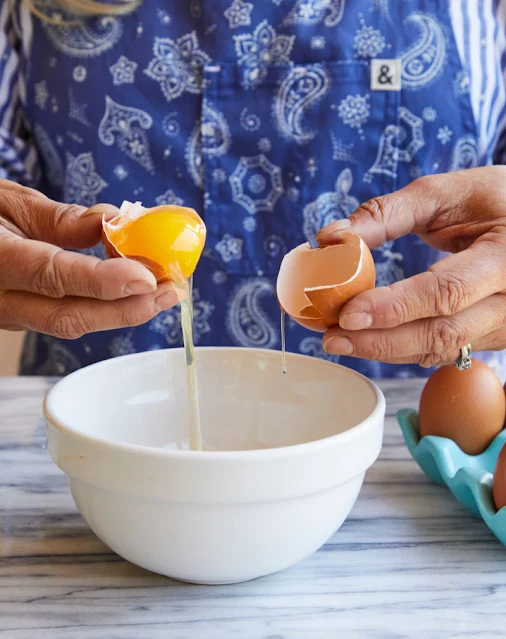Common Egg Cooking Mistakes You Might be Making
Before you fry, poach, scramble or bake with eggs, be sure you're not making one of these common mistakes. While cooking eggs isn't difficult, there are some basic things to keep in mind so you don't ruin them.
Although souffles and omelets are typically considered some of the more difficult egg dishes to master, even scrambled, hard boiled and fried eggs, not to mention baked goods, will all turn out better if you follow these simple tips to avoid some common egg cooking mistakes you might be making.
Common Egg Cooking Mistakes You Might be Making
Not Using Fresh Eggs
Fresh really does matter when in comes to cooking eggs. Not only do fresh eggs just taste "fresher", it’s especially important to use fresh eggs for hard-boiling, frying or poaching.
There's a big difference between a "fresh" eggs that's less than 2 or 3 weeks old - and an egg that's several months old. Still perfectly good to eat, an old egg just isn't as good.
Not sure how old your eggs are? Use the float test.
Boiling Old Eggs
If you boil old eggs into which air has had time to seep into, you’ll end up with a dip in one end which definitely doesn’t make pretty hard-boiled or deviled eggs.
But if you’re having trouble peeling fresh eggs, you’re not alone. As an egg ages, moisture escapes and air enters through the pores in the eggshell. This pushes the membrane away from the shell making peeling easier.
Fresh eggs will peel perfectly if you steam them in a double boiler or colander over simmering water for 12 minutes, then put them into a bowl of ice water until they’re cool enough to handle.
Frying Old Eggs
Since egg whites thin out as an egg ages, a fried egg will spread out in the pan. The membrane holding the egg yolk together also thins as an egg ages, so you’re more likely to break the yolk of your fried egg.
Another tip: if you want crispy browned edges on your fried eggs, use oil in the pan, if you want a richer, creamier texture to your egg whites, use butter.
And don't add your eggs to the pan until it's hot enough. That means the oil is shimmering, or the butter has melted and the foam has disappeared.
Poaching Old Eggs
Poached eggs won’t hold together nicely when they’re made with old eggs since the whites are thinner and runnier and less likely to form nicely around the yolk as they're cooking.
Using the Wrong Pan
Eggs will turn out much better if the correct type or size of pan is used. For example, scrambling eggs in an enameled skillet, nonstick, teflon-free frying pan (or cast iron skillet using lots of oil or butter) ensures that they won’t stick.
For omelets or crepes, a fairly lightweight, shallow skillet with sloped sides is optimal.
A pot deep enough and large enough that the eggs don’t touch the bottom, have plenty of room and aren’t crowded is important when you’re poaching eggs.
Hard-boiled eggs need enough room in the colander or double boiler that they can sit in a single layer without touching so they don’t break.
Tarts and quiche are easier to remove when they’re baked in pans with removable bottoms.
Cheesecake should be baked in a springform pan, and angel food cake needs to be baked in a special angel food cake pan.
Not Whisking Scrambled Eggs
Eggs should always be whisked well in a bowl until the yolks and whites are completely combined. then poured into the hot skillet.
Eggs cook so quickly as soon as the heat touches them, and failure to properly whisk your eggs will result in weird clumps of gelatinous whites throughout which are hardly appetizing.
Salting Eggs Too Early
And never salt your eggs until they’re done cooking. The salt will draw moisture out of your eggs, causing them to separate in the pan and get watery. So salt your eggs after plating them.
Cooking Eggs Too Quickly
As mentioned above, eggs cook unbelievably fast, and dry, overcooked eggs are really unappealing. So always cook your eggs slowly over low heat, moving scrambled eggs around with a wooden spoon or spatula as they cook to break up the large curds.
Fried eggs should also be cooked slowly, remembering that the whites cook faster than the yolk, so if you prefer a less runny yolk, try basting the yolk with the cooking oil or butter, or covering the pan.
(Unless you like the crispy edges. Then fry your eggs over medium-high heat until they're as crispy as you like them.)
When the eggs are just barely set and still wet looking, remove the pan from the heat. Eggs will continue to cook even once they come off the heat, so plate them immediately to slow the cooking. And stop cooking your eggs just before they are fully done.
Cracking Eggs on the Edge of the Bowl or Counter
Eggs should always be cracked on a flat surface like a cutting board or counter top. This prevents eggshell shards or even bacteria from possibly being pushed into the egg.
Never crack an egg on the sharp edge of the counter or the rim of a bowl. Always use a flat surface.










































